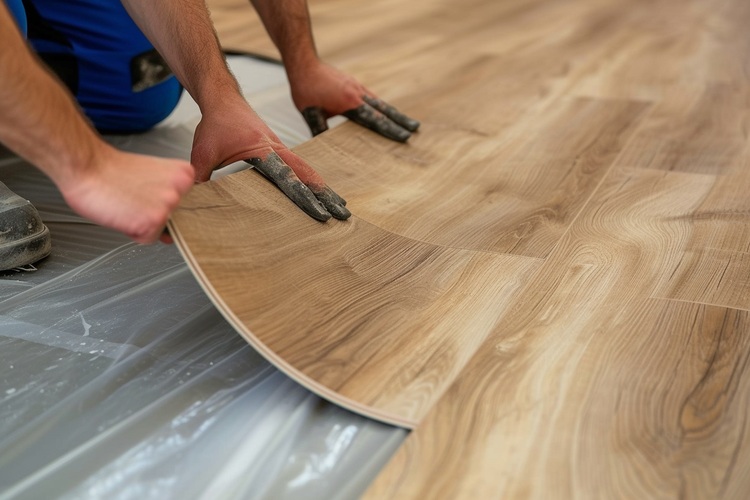Steps to Find the Right Flooring Company for Your Home
Choosing the right flooring company for your home is an important decision that can impact both the look and longevity of your floors. With so many options available, it’s essential to find a company that offers quality materials, skilled installation, and reliable customer service. Whether you’re updating a single room or renovating your entire home, taking the time to research and compare flooring providers ensures you get results that are both beautiful and durable.

Choosing new flooring for your home is an exciting endeavor, but the success of the project largely depends on the expertise of the installation company. A methodical approach to selecting a provider can save time, money, and potential headaches, leading to a finished product that enhances your living space and meets your practical needs.
Research and Compare Flooring Options
Before engaging with installation companies, it is beneficial to have a clear understanding of the various flooring options available and which ones might best suit your home and lifestyle. Common choices include hardwood, known for its timeless beauty and longevity; laminate, a more budget-friendly alternative that mimics wood or stone; tile, favored for its durability and water resistance in areas like kitchens and bathrooms; carpet, offering warmth and sound absorption; and vinyl, a versatile and resilient option. Each material has distinct characteristics regarding appearance, maintenance requirements, durability, and cost. Researching these options allows you to identify what you envision for your space and helps you communicate your preferences effectively to potential installers, ensuring they can meet your specific needs. Consider factors such as foot traffic, pet ownership, moisture exposure, and your aesthetic preferences when evaluating different types of flooring.
Check Credentials and Customer Reviews
Once you have a general idea of the flooring type you desire, the next crucial step involves thoroughly vetting potential flooring companies. Begin by verifying their credentials, including licenses and insurance. A properly licensed company operates legally and adheres to industry standards, while adequate insurance protects both the company and the homeowner in case of accidents or damage during the installation process. Beyond official credentials, customer reviews and testimonials offer valuable insights into a company’s reliability, quality of work, and customer service. Websites, social media platforms, and local business directories often feature reviews from previous clients. Pay attention to consistent feedback regarding professionalism, adherence to timelines, communication, and the overall satisfaction with the finished product. These insights can help paint a realistic picture of what to expect from a particular provider.
Get Estimates and Ask Questions
After narrowing down your list of potential companies, it is advisable to obtain detailed estimates from at least three different providers. A comprehensive estimate should clearly outline material costs, labor fees, any preparatory work required (such as subfloor leveling or old flooring removal), and a projected timeline for completion. Do not hesitate to ask a range of questions to clarify any uncertainties. Inquire about the company’s experience with the specific type of flooring you are considering, their warranty policies on both materials and labor, and their process for handling unforeseen issues or delays. Understanding the scope of work, payment schedules, and any guarantees provided is essential for a transparent and smooth project. A reputable company will be forthcoming with information and eager to address all your concerns, ensuring you feel confident in their ability to deliver.
Understanding the potential costs involved in flooring installation is a key part of the decision-making process. Prices can vary significantly based on the type of material chosen, the complexity of the installation, the size of the area, and local labor rates. For instance, hardwood flooring typically represents a higher material and labor cost compared to laminate or vinyl. Factors such as subfloor preparation, removal of existing flooring, and the need for specialized tools can also influence the overall expense. It is crucial to get detailed breakdowns in your estimates to understand where your money is being allocated.
| Service Type | Typical Material Cost (per sq ft) | Typical Labor Cost (per sq ft) |
|---|---|---|
| Hardwood | $4 - $12 | $3 - $8 |
| Laminate | $1 - $5 | $2 - $6 |
| Tile | $2 - $15 | $5 - $10 |
| Vinyl Plank | $1 - $7 | $2 - $5 |
| Carpet | $1 - $6 | $1 - $3 |
Prices, rates, or cost estimates mentioned in this article are based on the latest available information but may change over time. Independent research is advised before making financial decisions.
Selecting a flooring company requires careful consideration and thorough investigation. By dedicating time to research flooring options, scrutinize company credentials and customer feedback, and engage in detailed discussions about estimates and project specifics, homeowners can confidently choose a provider that aligns with their vision and budget. This diligent approach helps ensure a successful flooring installation that enhances the beauty and value of their home for years to come.




